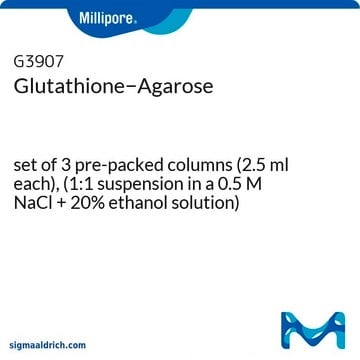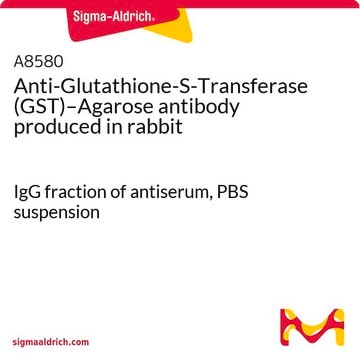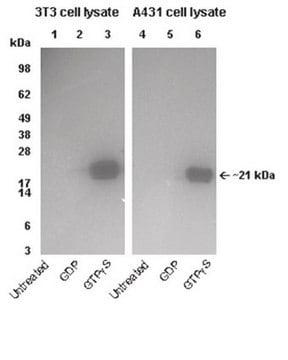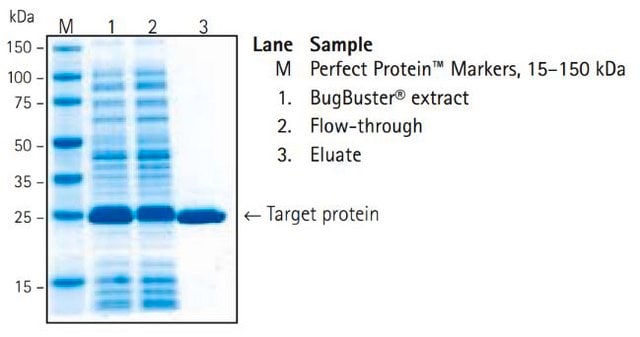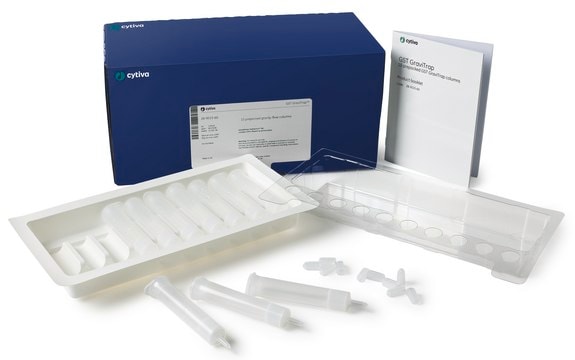G4510
Glutathione−Agarose
lyophilized powder
Synonym(s):
Glutathione-Agarose Resin, GSH-agarose, S-linked glutathione agarose
About This Item
Recommended Products
form
lyophilized powder
analyte chemical class(es)
proteins (GST)
extent of labeling
≥10 μmol per mL gel
technique(s)
immunoprecipitation (IP): suitable
protein purification: suitable
matrix
4% cross-linked beaded agarose
matrix activation
epoxy
matrix attachment
sulfur
matrix spacer
12 atoms (10 carbon)
storage temp.
−20°C
Looking for similar products? Visit Product Comparison Guide
General description
Application
- to purify glutathione S-transferase (GST)-fused protein for generating polyclonal antibody M4P
- to incubate supernatant fractions for the purification of full-length p53 (aa 1-393) and its DNA-binding domain (aa 94-288)
- in affinity purification of the fusion protein
Biochem/physiol Actions
Features and Benefits
- Offers rapid, mild, non-denaturing, and highly selective purification of glutathione-binding enzymes.
- Has a shelf life of two years if stored properly desiccated at -20 °C.
- Binding capacity: 5-10 mg glutathione S-transferase per mL resin
Quantity
Physical form
Storage Class Code
11 - Combustible Solids
WGK
WGK 3
Flash Point(F)
Not applicable
Flash Point(C)
Not applicable
Personal Protective Equipment
Certificates of Analysis (COA)
Search for Certificates of Analysis (COA) by entering the products Lot/Batch Number. Lot and Batch Numbers can be found on a product’s label following the words ‘Lot’ or ‘Batch’.
Already Own This Product?
Find documentation for the products that you have recently purchased in the Document Library.
Customers Also Viewed
Related Content
Investigate in vitro protein-protein interactions with pull-down assays, utilizing affinity, GST pull-down, TAP, and co-immunoprecipitation methods.
Investigate in vitro protein-protein interactions with pull-down assays, utilizing affinity, GST pull-down, TAP, and co-immunoprecipitation methods.
Investigate in vitro protein-protein interactions with pull-down assays, utilizing affinity, GST pull-down, TAP, and co-immunoprecipitation methods.
Investigate in vitro protein-protein interactions with pull-down assays, utilizing affinity, GST pull-down, TAP, and co-immunoprecipitation methods.
Our team of scientists has experience in all areas of research including Life Science, Material Science, Chemical Synthesis, Chromatography, Analytical and many others.
Contact Technical Service



